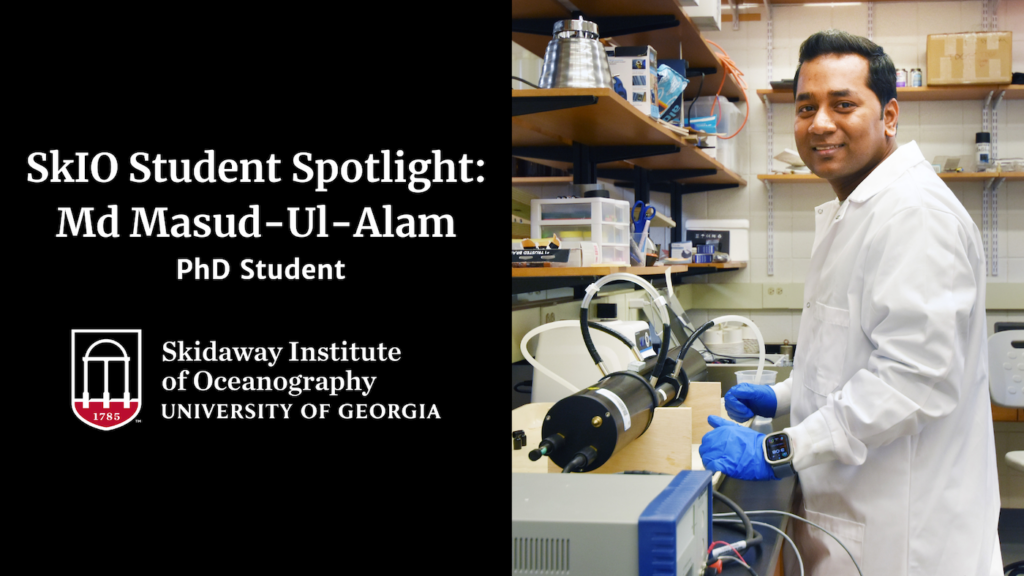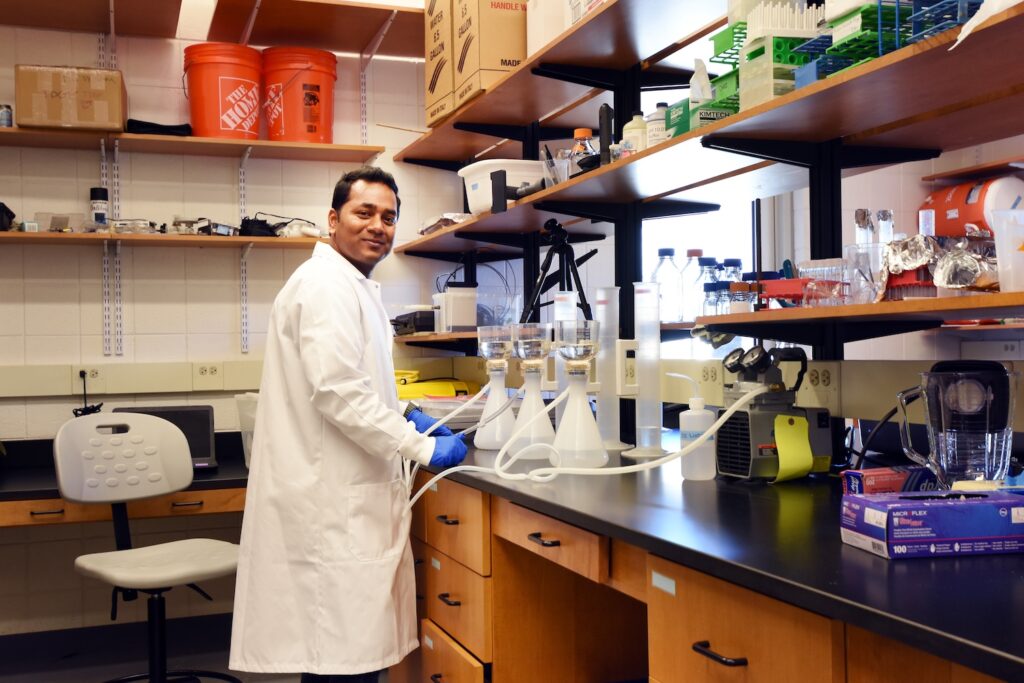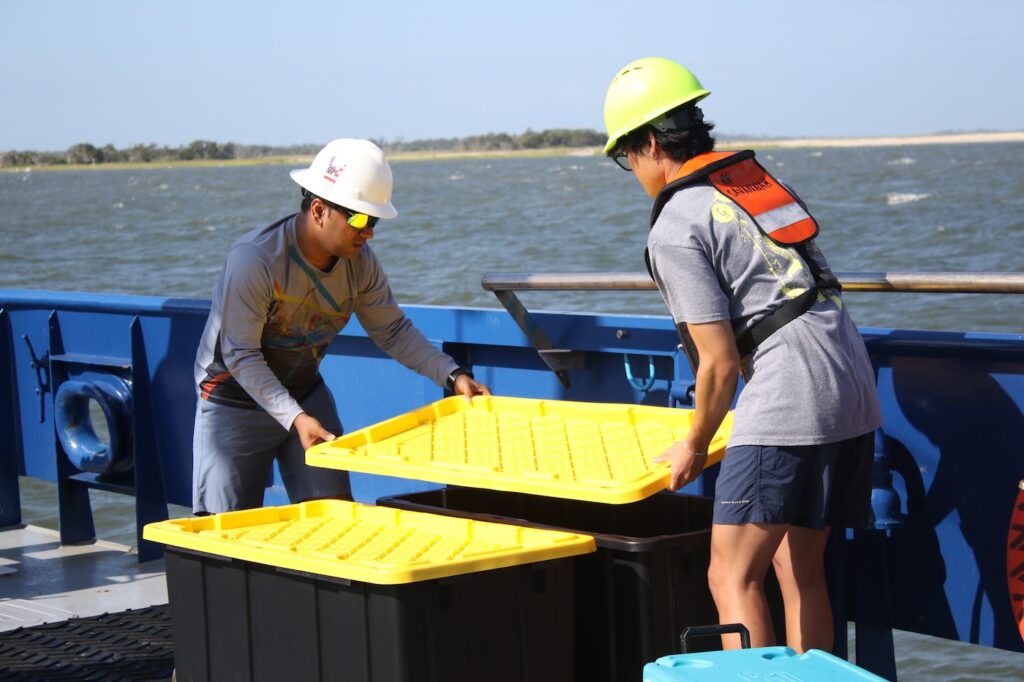
Md Masud-Ul-Alam is a doctoral student working as a research assistant under faculty member Sara Rivero-Calle in the Bio-Optical and Satellite Oceanography laboratory at the University of Georgia Skidaway Institute of Oceanography (SkIO). Originally from Bangladesh, he completed his bachelor’s in fisheries and marine sciences and his master’s in oceanography at the University of Dhaka, Bangladesh. Later, he worked as a POGO fellow at the Alfred Wegener Institute for Polar and Marine Research in Germany. His research focuses on CubeSat, algorithm developments for satellites, climate variability and machine learning.
SkIO: What are you researching, and who are you working with?
Md Masud-Ul-Alam: I am currently working on several projects, including a performance study of SeaHawk (a low-cost CubeSat mission), developing satellite algorithms for estimating suspended sediments in the ocean, and studying surface currents in the Bay of Bengal, looking at how they link to different climatic events. I am working with Dr. Sara Rivero-Calle at SkIO.
SkIO: What inspired your track of study?
Md Masud-Ul-Alam: I grew up in a rural, coastal area of Bangladesh. That made me very familiar and connected to the oceans and coasts. However, my interest in oceanography grew to its peak when Bangladesh won a vast maritime boundary from two neighboring countries, India and Myanmar (after long disputes). My time spent at the Alfred Wegener Institute in Germany further fueled my passion for marine sciences.

SkIO: Why did you choose UGA/SkIO?
Md Masud-Ul-Alam: The main reasons why I chose SkIO/UGA were threefold. Firstly, SkIO is a research-based institute, and my passion is to do research. Secondly, the SeaHawk project, a new and state-of-the-earth satellite mission coordinated by our lab, NASA and the University of North Carolina Wilmington, was very appealing to me. Finally, I like the working environment in our lab at SkIO.
SkIO: Describe a typical day in your life at SkIO.
Md Masud-Ul-Alam: A typical day for me at SkIO involves a mix of data analysis, coding and collaborative research. I spend a considerable amount of time writing and debugging codes for satellite data analysis and algorithm development. Additionally, I participate in lab meetings, attend seminars, go on research cruises and collaborate with fellow researchers.
SkIO: Where do you see yourself in 5-10 years?
Md Masud-Ul-Alam: I envision myself continuing my research in satellite oceanography, potentially at an academic or research institution. I aim to contribute to the advancement of oceanographic research and the development of algorithms for ocean color satellites.
SkIO: What do you do for fun, outside of your work/studies?
Md Masud-Ul-Alam: Outside of my work and studies, I love to travel, play chess and pickleball, and watch movies.
SkIO: What advice would you give a high school or undergraduate student interested in a similar track? How can they get to where you are?
Md Masud-Ul-Alam: My advice to students interested in marine sciences is to stay curious and passionate about the ocean. I recommend gaining hands-on experience through internships, participating in research projects, and developing strong analytical and coding skills. Oceanography is a multidisciplinary program, so you should be passionate and keep yourself updated with innovative technologies.

About SkIO
The UGA Skidaway Institute of Oceanography (SkIO) is a multidisciplinary research and education institution located on Skidaway Island near Savannah, Georgia. The Institute was founded in 1967 with a mission to conduct research in all fields of oceanography. In 2013, SkIO was merged with the University of Georgia. The campus serves as a gateway to coastal and marine environments for programs throughout the University System. The Institute’s primary goals are to further the understanding of marine and environmental processes, conduct leading-edge research on coastal and marine systems, and train tomorrow’s scientists. For more information, visit www.skio.uga.edu.


